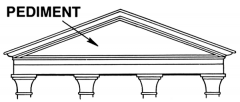![]()
![]()
![]()
Use LEFT and RIGHT arrow keys to navigate between flashcards;
Use UP and DOWN arrow keys to flip the card;
H to show hint;
A reads text to speech;
160 Cards in this Set
- Front
- Back
- 3rd side (hint)
|
abdicate |
1. (of a monarch) renounce one's throne. |
2. fail to fulfill or undertake (a responsibility or duty). |
|
|
abnegate |
renounce or reject (something desired or valuable). |
|
|
|
abrogate |
repeal or do away with (a law, right, or formal agreement). |
|
|
|
abstemious |
not self-indulgent, especially when eating and drinking. |
|
|
|
abstruse |
difficult to understand; obscure. |
|
|
|
accession |
1. the attainment or acquisition of a position of rank or power, typically that of monarch or president. |
2. a new item added to an existing collection of books, paintings, or artifacts. |
|
|
acrimony |
bitterness or ill feeling. |
|
|
|
affinity
|
A spontaneous or natural liking or sympathy for someone or something. |
|
|
|
ailurophile |
a cat lover. |
|
|
|
altruism |
the belief in or practice of disinterested and selfless concern for the well-being of others. |
|
|
|
anathema
|
1. something or someone that one vehemently dislikes. |
2. a formal curse by a pope or a council of the Church, excommunicating a person or denouncing a doctrine. |
|
|
animus |
1. hostility or ill feeling. |
2. motivation to do something. |
|
|
anodyne
|
1. serving to alleviate pain
|
2. not likely to offend or arouse tensions : innocuous
|
|
|
antecedent |
n. a thing or event that existed before or logically precedes another. |
a. preceding in time or order; previous or preexisting |
|
|
apoplectic
|
overcome with anger; extremely indignant |
|
|
|
apotheosis |
the highest point in the development of something; culmination or climax. |
|
|
|
arrogate |
take or claim (something) without justification. |
|
|
|
assail |
make a concerted or violent attack on.
|
|
|
|
attenuated |
unnaturally thin.
|
|
|
|
autological word (also called homological word) |
a word expressing a property which it also possesses itself (e.g.., the word "short" is short.) |
|
|
|
avarice |
extreme greed for wealth or material gain. |
|
|
|
beleaguer |
1. lay siege to. |
2. beset with difficulties. |
|
|
bucolic
|
1. of or relating to the pleasant aspects of the countryside and country life.
|
2. a pastoral poem |
|
|
cant |
1. hypocritical and sanctimonious talk, typically of a moral, religious, or political nature. |
2. denoting a phrase or catchword temporarily current or in fashion. |
|
|
casuistry |
The use of clever but unsound reasoning, especially in relation to moral questions; sophistry |
|
|
|
censure |
v. express severe disapproval of (someone or something), typically in a formal statement. |
n. the expression of formal disapproval. |
|
|
cognate
|
In linguistics, cognates are words that have a common etymological origin. |
|
|
|
colonadde
|
a long sequence of columns joined by their entablature, often free-standing, or part of a building.
|

|
|
|
colloquial
|
used in ordinary conversation; not formal or literary.
|
|
|
|
comensurate
|
1: equal in measure or extent : coextensive
|
2: corresponding in size, extent, amount, or degree : proportionate |
|
|
commiserate
|
express or feel sympathy or pity; sympathize.
|
|
|
|
compunction |
1. a feeling of guilt or moral scruple that follows the doing of something bad. |
2. a pricking of the conscience. |
|
|
concatenation
|
a series of interconnected things or events.
|
|
|
|
conflate |
combine (two or more texts, ideas, etc.) into one. |
|
|
|
connubial |
of or relating to marriage or the relationship of a married couple; conjugal. |
|
|
|
consubstantial |
of the same substance or essence (used especially of the three persons of the Trinity in Christian theology). |
|
|
|
contrite
|
1. Arising from sense of guilt: done or said out of a sense of guilt or remorse.
|
2. Very sorry: genuinely and deeply sorry about something |
|
|
corporeal
|
of or relating to a person's body, esp. as opposed to their spirit.
|
|
|
|
corpuscle
|
1. a minute body or cell in an organism, esp. a red or white cell in the blood of vertebrates.
|
|
|
|
craven
|
having or showing a complete lack of courage : very cowardly
|
|
|
|
credulous
|
having or showing too great a readiness to believe things.
|
|
|
|
culpable
|
deserving blame.
|
|
|
|
denuded |
strip (something) of its covering, possessions, or assets; make bare. |
|
|
|
deprecate |
1. express disapproval of. |
2. another term for depreciate |
|
|
detritus |
waste or debris of any kind. gravel, sand, silt, or other material produced by erosion. organic matter produced by the decomposition of organisms. |
|
|
|
diaphanous |
(especially of fabric) light, delicate, and translucent. |
|
|
|
dichotomy |
a division or contrast between two things that are or are represented as being opposed or entirely different. |
|
|
|
dissemble |
conceal one's true motives, feelings, or beliefs. |
|
|
|
dulcet |
(especially of sound) sweet and soothing (often used ironically). |
|
|
|
ecclesiastical |
1. of or relating to a church especially as an established institution |
2. suitable for use in a church |
|
|
embrocation |
a liquid used for rubbing on the body to relieve pain from sprains and strains. |
|
|
|
entablature
|
the superstructure of moldings and bands which lie horizontally above columns, resting on their capitals.
|

|
|
|
ephemeral
|
lasting for a very short time.
|
|
|
|
epistemology
|
the study or a theory of the nature and grounds of knowledge especially with reference to its limits and validity
|
|
|
|
epistolary
|
relating to or denoting the writing of letters or literary works in the form of letters.
|
|
|
|
epithet |
an adjective or descriptive phrase expressing a quality characteristic of the person or thing mentioned. |
|
|
|
equivocation |
The use of ambiguous language to conceal the truth or to avoid committing oneself; prevarication.
|
|
|
|
eschew
|
deliberately avoid using; abstain from.
|
|
|
|
ethereal
|
extremely delicate and light in a way that seems too perfect for this world. |
|
|
|
euhemerism
|
Attempt to find a historical basis for mythical beings and events. It takes its name from Euhemerus (fl. 300 BC), a Greek scholar who examined popular mythology in his Sacred History and asserted that the gods originated as heroes or conquerors who were admired and later deified. Though modern scholars do not accept euhemerism as the sole explanation for the origin of gods, it is thought to be valid in some cases. |
|
|
|
exculpatory
|
tending or serving to exculpate; exonerate
|
|
|
|
expiate |
atone for (guilt or sin) |
|
|
|
extensible
|
1. able to be extended; extendable.
|
2. relating to a programming language or a system that can be modified by changing or adding features. |
|
|
extirpate |
1. to remove or destroy totally; do away with; exterminate. |
2. to pull up by or as if by the roots; root up: |
|
|
facile
|
1. (esp. of a theory or argument) appearing neat and comprehensive only by ignoring the true complexities of an issue; superficial.
|
2. (of success, esp. in sports) easily achieved; effortless.
|
|
|
fetter |
1. restrain with chains or manacles, typically around the ankles. |
2. restrict or restrain (someone) in an unfair or undesirable fashion. |
|
|
fleeting |
lasting for a very short time.
|
|
|
|
forbearance |
patient self-control; restraint and tolerance. |
|
|
|
fugacious |
tending to disappear; fleeting. |
|
|
|
fulminate |
1. To make a verbal attack
|
2. To issue as a denunciation. |
|
|
gambol |
run or jump about playfully. |
|
|
|
glib |
(of words or the person speaking them) fluent and voluble but insincere and shallow. |
|
|
|
halcyon |
denoting a period of time in the past that was idyllically happy and peaceful. |
|
|
|
haughty |
arrogantly superior and disdainful. |
|
|
|
heterological word
|
a word that does not apply to itself (e.g., "long" is not long.)
|
|
|
|
iconoclast |
1. a person who attacks cherished beliefs or institutions. |
2. a destroyer of images used in religious worship, in particular. |
|
|
ignoble
|
not honorable in character or purpose; shameful. |
|
|
|
illucidate |
make (something) clear; explain. |
|
|
|
imbrication |
an overlapping of edges (as of tiles or scales) |

|
|
|
imbroglio |
an extremely confused, complicated, or embarrassing situation. |
|
|
|
impinge
|
have an effect or impact, esp. a negative one. |
|
|
|
incisive
|
Intelligently analytical and clear-thinking. |
|
|
|
ingratiate
|
1. bring oneself into favor with someone by flattering or trying to please them.
|
|
|
|
internecine
|
1. destructive to both sides in a conflict.
|
2. of or relating to conflict within a group or organization. |
|
|
interstice |
an intervening space, especially a very small one. |
|
|
|
invective
|
insulting, abusive, or highly critical language.
|
|
|
|
irascible
|
characterized by or arising from anger.
|
|
|
|
jurisprudence
|
the theory or philosophy of law.
|
|
|
|
juxtaposition |
the fact of two things being seen or placed close together with contrasting effect. |
|
|
|
licentious
|
promiscuous and unprincipled. Lacking moral discipline.
|
|
|
|
lingua franca |
a language systematically (as opposed to occasionally, or casually) used to make communication possible between persons not sharing a native language, in particular when it is a third language, distinct from both native languages. |
a.k.a. "bridge language" or "vehicular language" |
|
|
loquacious |
tending to talk a great deal; talkative. |
|
|
|
magnanimous |
very generous or forgiving, especially toward a rival or someone less powerful than oneself. |
|
|
|
minima
|
plural of minimum.
|
|
|
|
mordant |
(especially of humor) having or showing a sharp or critical quality; biting. |
|
|
|
nescient
|
lacking knowledge; ignorant.
|
|
|
|
obfuscation
|
(or beclouding) is the hiding of intended meaning in communication, making communication confusing, wilfully ambiguous, and harder to interpret.
|
|
|
|
oblation |
a thing presented or offered to God or a god. |
|
|
|
obsequious
|
obedient or attentive to an excessive degree. |
|
|
|
obviate
|
to remove (a need or difficulty).
|
|
|
|
ontology
|
1: a branch of metaphysics concerned with the nature and relations of being
|
2: a particular theory about the nature of being or the kinds of things that have existence |
|
|
orthogonal |
1. of or involving right angles; at right angles. |
2. (of variates) statistically independent. |
|
|
ostensible
|
stated or appearing to be true, but not necessarily so.
|
|
|
|
ostentatious |
characterized by vulgar or pretentious display; designed to impress or attract notice. |
|
|
|
pallid |
1. (of a person's face) pale, typically because of poor health. |
2. feeble or insipid. |
|
|
parse |
1. To break (a sentence) down into its component parts of speech with an explanation of the form, function, and syntactical relationship of each part.
2. To describe (a word) by stating its part of speech, form, and syntactical relationships in a sentence. |
3. To examine closely or subject to detailed analysis, especially by breaking up into components |
|
|
parsimony |
extreme unwillingness to spend money or use resources. |
|
|
|
pediment |

1. the triangular upper part of the front of a building in classical style, typically surmounting a portico of columns.
|
2. a broad, gently sloping expanse of rock debris extending outward from the foot of a mountain slope, especially in a desert. |
|
|
penury
|
extreme poverty; destitution |
|
|
|
perdition
|
(in Christian theology) a state of eternal punishment and damnation into which a sinful and unpenitent person passes after death. |
|
|
|
perfunctory
|
(of an action or gesture) carried out with a minimum of effort or reflection. |
|
|
|
pernicious |
having a harmful effect, especially in a gradual or subtle way. |
|
|
|
perspicacious
|
1. acutely perceptive or discerning
|
2. having keen eyesight |
|
|
piquant |
1. having a pleasantly sharp taste or appetizing flavor. |
2. pleasantly stimulating or exciting to the mind. |
|
|
plebeian |
(in ancient Rome) a commoner. |
|
|
|
polemic |
a strong verbal or written attack on someone or something. |
|
|
|
portend
|
be a sign or warning that (something, esp. something momentous or calamitous) is likely to happen.
|
|
|
|
portent |
A sign or warning that something significant is likely to happen.
|
|
|
|
portico
|
(from Italian) a porch leading to the entrance of a building, or extended as a colonnade, with a roof structure over a walkway, supported by columns or enclosed by walls. |

|
|
|
portmanteau
|
a combination of two (or more) words or morphemes, and their definitions, into one new word. |
|
|
|
prescient
|
having or showing knowledge of events before they take place; foresight.
|
|
|
|
recondite
|
little known, obscure, abstruse.
|
|
|
|
rectitude |
morally correct behavior or thinking; righteousness. |
|
|
|
recursion |
1. the process of repeating items in a self-similar way.
|
2. a method of defining functions in which the function being defined is applied within its own definition. |
|
|
refudiate |
to repudiate, to oppose |
|
|
|
refulgent |
shining, brilliant, or radiant |
|
|
|
remiss |
lacking care or attention to duty; negligent. |
|
|
|
remit (verb)
|
1. cancel or refrain from exacting or inflicting (a debt or punishment).
|
2. send (money) in payment or as a gift. |
|
|
remit (noun)
|
1. the task or area of activity officially assigned to an individual or organization.
|
2. an item referred to someone for consideration. |
|
|
repudiate |
1. refuse to accept or be associated with. |
2. deny the truth or validity of. |
|
|
respite |
a short period of rest or relief from something difficult or unpleasant. |
|
|
|
riposte (can be used as noun or verb)
|
1. a quick clever reply to an insult or criticism.
|
2. a quick return thrust following a parry. |
|
|
riven |
to divide or split (something) especially in a forceful or violent way. |
|
|
|
sagacious |
having or showing keen mental discernment and good judgment; shrewd. |
|
|
|
salient |
1. most noticeable or important. |
2. HERALDRY (of an animal) standing on its hind legs with the forepaws raised, as if leaping. |
|
|
sanctimonious |
making a show of being morally superior to other people. |
|
|
|
sanguine
|
v. optimistic or positive, esp. in an apparently bad or difficult situation. |
n. a blood-red color. |
|
|
sardonic |
grimly mocking or cynical. |
|
|
|
secular |
denoting attitudes, activities, or other things that have no religious or spiritual basis. |
|
|
|
sedition |
conduct or speech inciting people to rebel against the authority of a state or monarch. |
|
|
|
Septuagint |
a translation of the Hebrew Bible and some related texts into Koine Greek. The title and its Roman numeral acronym LXX refer to the legendary seventy Jewish scholars who completed the translation as early as the late 2nd century BCE. As the primary Greek translation of the Old Testament, it is also called the Greek Old Testament |
|
|
|
servility |
an excessive willingness to serve or please others. |
|
|
|
sobriquet |
a person's nickname. |
|
|
|
sophistry
|
The use of fallacious arguments, especially with the intention of deceiving. |
|
|
|
spurious |
1. not being what it purports to be; false or fake. |
2. (of a line of reasoning) apparently but not actually valid. |
|
|
stultify |
1. cause to lose enthusiasm and initiative, especially as a result of a tedious or restrictive routine. |
2. cause (someone) to appear foolish or absurd. |
|
|
supersede |
to take the place of (a person or thing previously in authority or use); supplant.
|
|
|
|
tacit |
understood or implied without being stated.
|
|
|
|
tenable |
1. able to be maintained or defended against attack or objection.
|
2. (of an office, position, scholarship, etc.) able to be held or used. |
|
|
tendentious |
expressing or intending to promote a particular cause or point of view, especially a controversial one. |
|
|
|
tenuous
|
very weak or slight; insubstantial.
|
|
|
|
timorous
|
Showing or suffering from nervousness, fear, or a lack of confidence. |
|
|
|
titch
|
1. a small person |
2. a small amount |
|
|
unctuous |
excessively or ingratiatingly flattering. |
|
|
|
verdant |
(of countryside) green with grass or other rich vegetation. |
|
|
|
vicissitude |
1. a change of circumstances or fortune, typically one that is unwelcome or unpleasant. |
|
|
|
vilify |
speak or write about in an abusively disparaging manner. |
|
|
|
vitiate |
spoil or impair the quality or efficiency of. |
|
|
|
vituperative |
bitter and abusive. |
|
|
|
vociferous |
vehement or clamorous |
|

